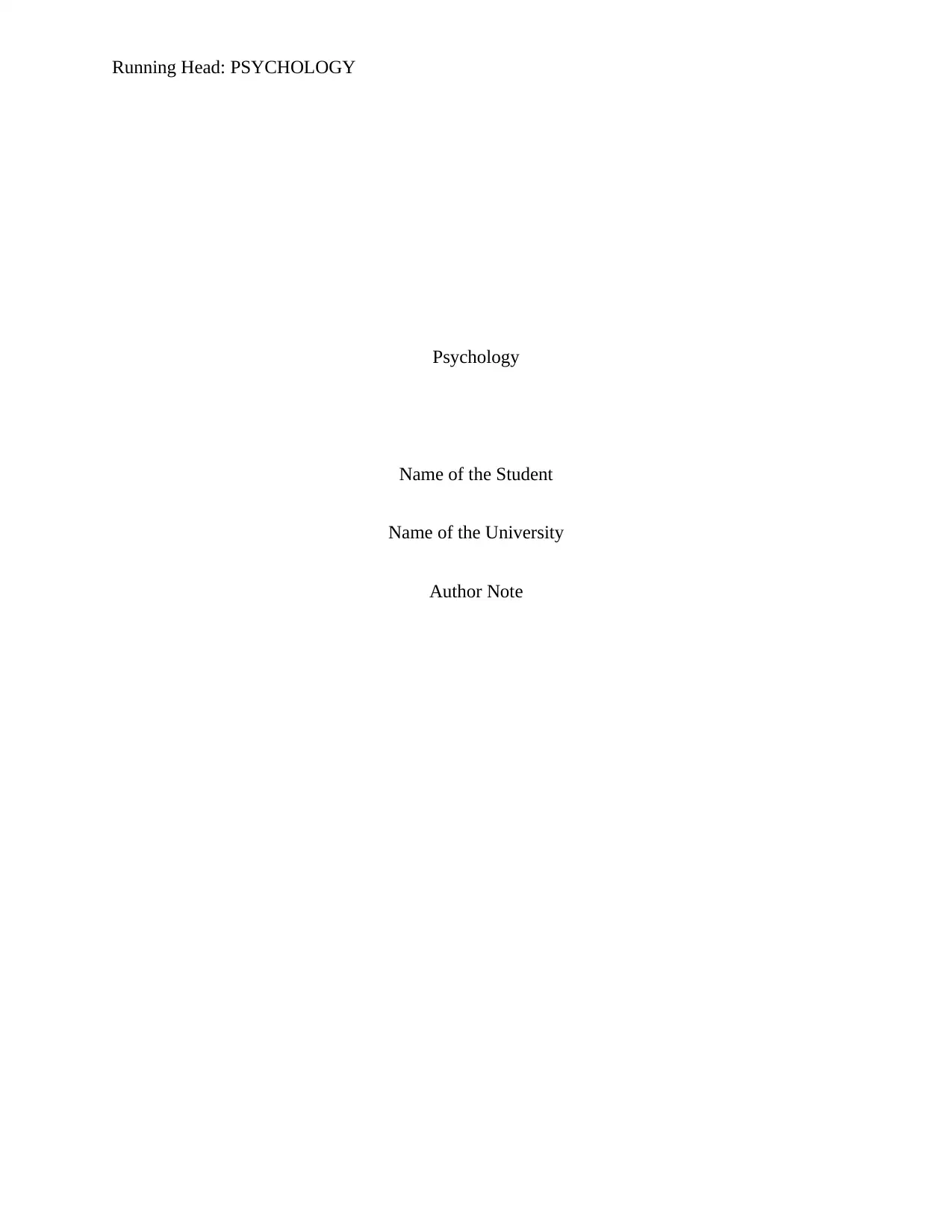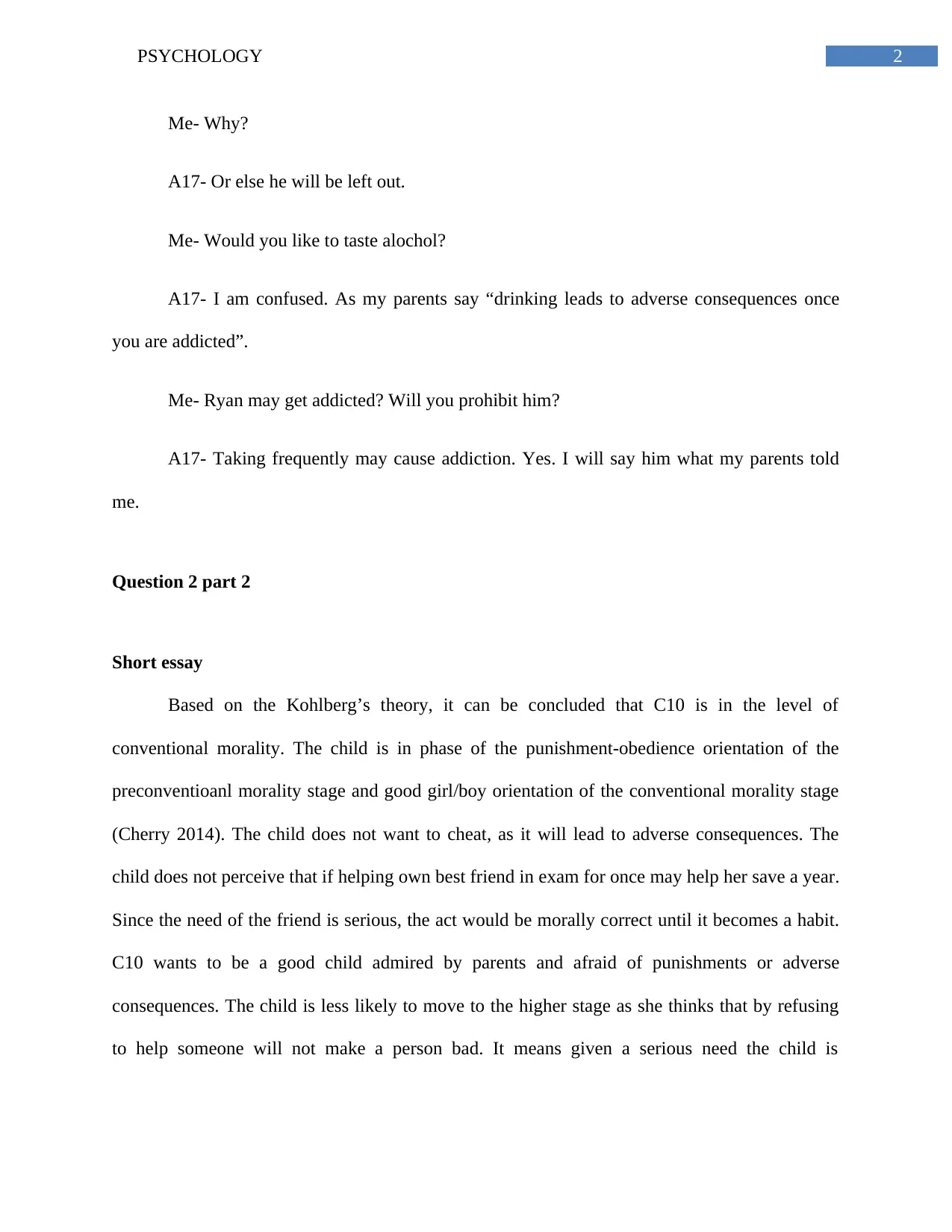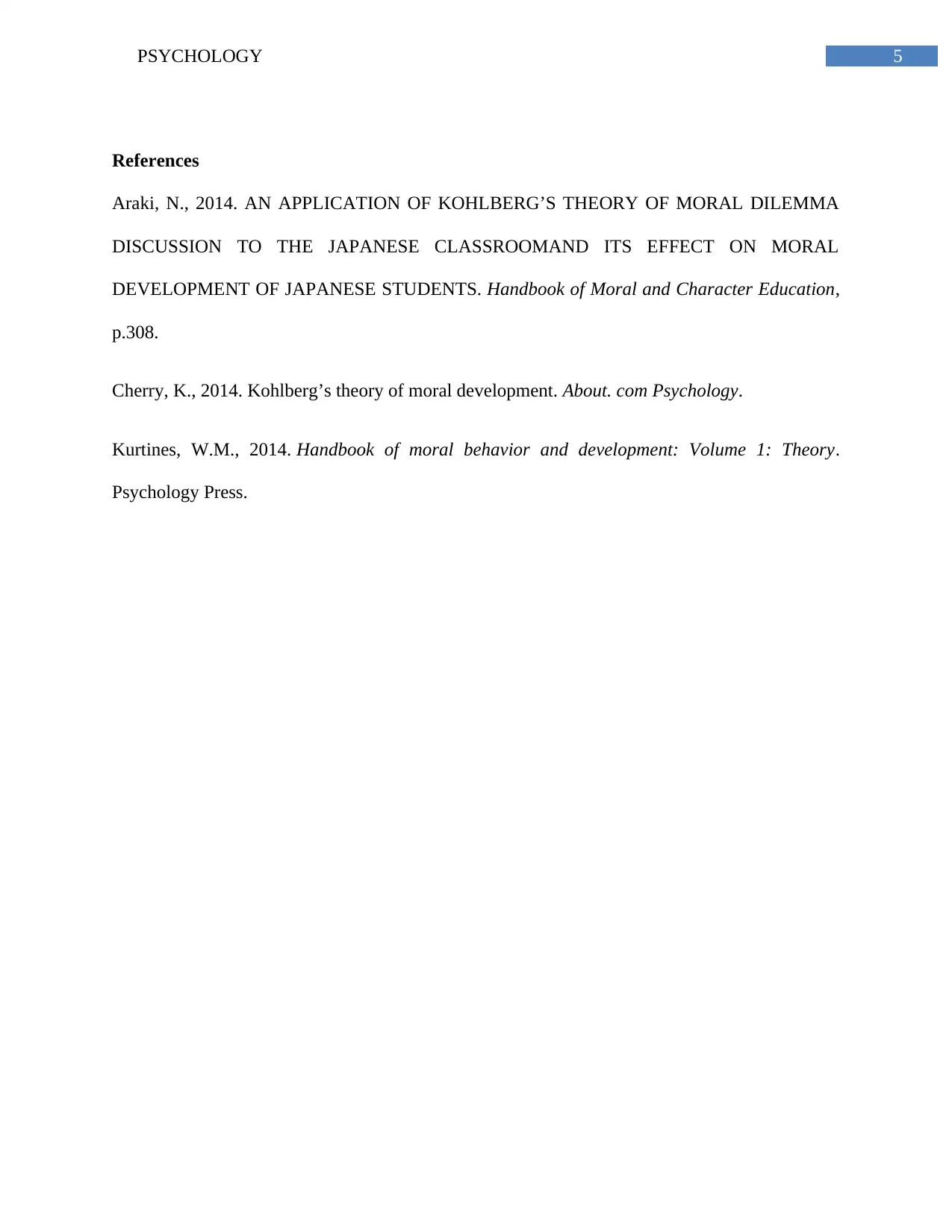Moral Development Analysis: Psychology Assignment - Kohlberg's Theory
VerifiedAdded on 2020/03/07
|6
|947
|166
Homework Assignment
AI Summary
This psychology assignment analyzes two scenarios, one involving a 10-year-old child and the other an adolescent, to assess their levels of moral development based on Kohlberg's theory. The analysis examines the responses of the child and adolescent to moral dilemmas, specifically focusing on their reasoning and decision-making processes. The assignment identifies the stages of moral development exhibited by each individual, using Kohlberg's framework of pre-conventional, conventional, and post-conventional morality. It also includes a discussion of the theory's strengths, such as its usefulness in understanding moral reasoning, and its limitations, such as the neglect of caring and potential gender biases, referencing relevant literature to support the analysis. The assignment concludes by acknowledging the theory's helpfulness in deducing the levels of moral development while also recognizing that individual behaviors might not always align perfectly with the theory's framework.
1 out of 6







![[object Object]](/_next/static/media/star-bottom.7253800d.svg)